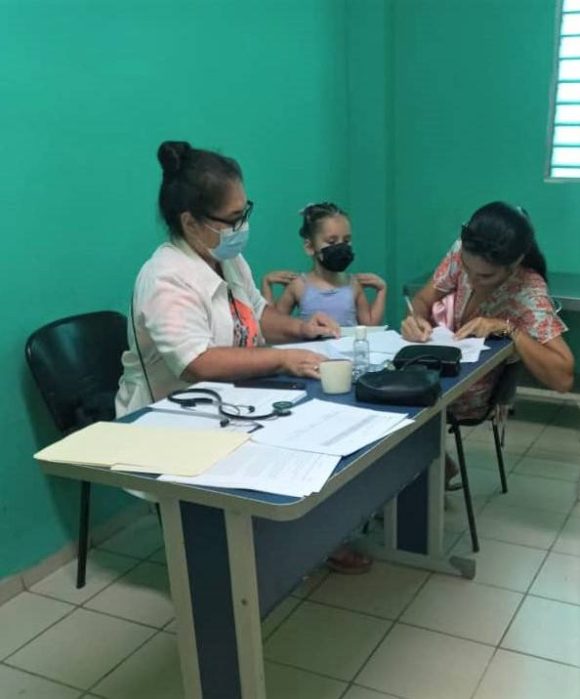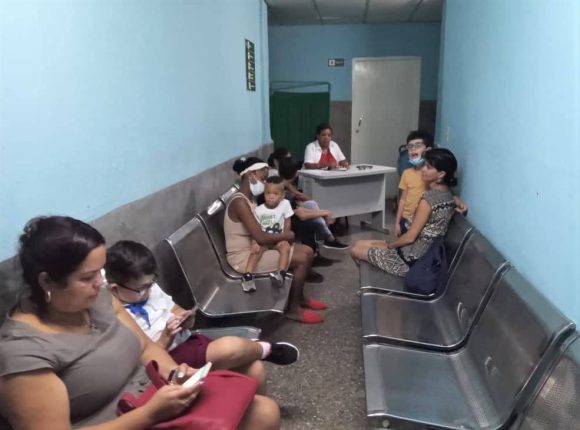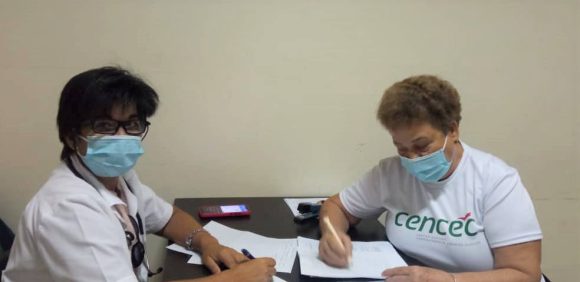Lisandra Fariñas Acosta – Cubadebate – Video: Canal Caribe / Cuban TV – Photo: Courtesy of IFV.

Quimi-Vio is a heptavalent conjugate vaccine that protects against the world’s most prevalent bacterial serotypes. Photo: Courtesy IFV.
The Finlay Vaccine Institute (IFV) has announced the launch of clinical studies of its vaccine candidate Quimi-Vio to prevent pneumonia, meningitis, otitis media and sepsis caused by Streptococcus pneumoniae, or pneumococcal bacteria, in pediatric populations with chronic diseases in the capital..
Quimi-Vio is a heptavalent conjugate vaccine that protects against the world’s most prevalent bacterial serotypes. It is based on a conjugate vaccine platform that is widely used and known for its safety and efficacy in the pediatric population.
Dr. Meybi Rodríguez, director of clinical trials at IFV, told Cubadebate that Quimi-Vio has completed all stages of clinical evaluation, demonstrating that it is a safe and effective vaccine for preventing pneumococcal disease. It began clinical evaluation in children in 2013 and is currently in the final stages of submitting a registration application to the regulatory agency, the Cuban Center for the Control of Medicines, Equipment and Medical Devices (Cecmed).
The expert noted that this vaccine was developed by IFV researchers who developed the immunogens Soberana 02 and Soberana Plus for the prevention of covid-19. The clinical development of Quimi-Vio was funded by the Financial Fund for Science and Innovation (Fonci) of the Ministry of Science, Technology and the Environment (Citma). Fonci is a financial instrument created in 2002 for science, technology and innovation projects.
Last September, a community intervention study was launched in Cienfuegos, in which 90% of the population aged 1-5 years was vaccinated. This study is a continuation of a similar study conducted by the province from 2017 to 2018, which achieved 92 per cent coverage and could assess the impact on reducing hospitalizations for invasive pneumococcal disease by more than 62 per cent. Fegos territory,” Rodriguez said.
This week, another clinical study began in Havana to evaluate the effectiveness of Quimi-Vio’s vaccine candidate in children ages 2 to 18 with chronic childhood diseases. Children ages 2 to 18 will receive a single dose.
The study was approved by Cecmed and led by the Center of Health and Epidemiology and Vaccination Program of the Province of Havana; conducted by the National Coordinating Center for Clinical Trials (Cecncec).
Dr. Mayra García Carmenate, deputy director of the Center of Health, Epidemiology and Microbiology of the Province of Havana and coordinator of the trial, said that for children with chronic diseases, this is an opportunity to reap the benefits of a vaccine that has been shown to be effective in healthy children Safe and effective.
The primary care system has been organized and groups of children potentially included in the study have been identified. Vaccinations are available at 32 polyclinics in all Havana municipalities.
It is worth pointing out that Pneumococcal disease is a global problem that particularly affects children under five years of age. According to the World Health Organization, pneumonia is the single largest cause of death among children worldwide. Pneumonia can be caused by viruses, bacteria, or fungi, with Streptococcus pneumoniae being the most common cause of bacterial pneumonia in children.

This week, another clinical study began in Havana to evaluate the effectiveness of Quimi-Vio’s vaccine candidate in children ages 2 to 18 with chronic childhood diseases. Photo: Courtesy IFV.

This week, another clinical study began in Havana to evaluate the effectiveness of Quimi-Vio’s vaccine candidate in children ages 2 to 18 with chronic childhood diseases. Photo: Courtesy IFV.

This week, another clinical study began in Havana to evaluate the effectiveness of Quimi-Vio’s vaccine candidate in children ages 2 to 18 with chronic childhood diseases. Photo: Courtesy IFV.

